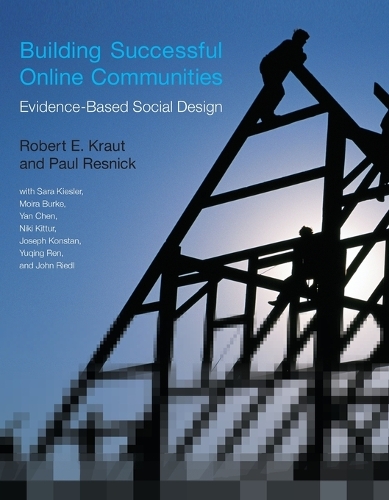
Building Successful Online Communities: Evidence-Based Social Design
(Paperback)
Publishing Details
Building Successful Online Communities: Evidence-Based Social Design
By (Author) Robert E. Kraut
By (author) Paul Resnick
With Sara Kiesler
With Moira Burke
With Yan Chen
With Niki Kittur
With Joseph Konstan
With Yuqing Ren
With John Riedl
MIT Press Ltd
MIT Press
12th February 2016
United States
Classifications
Tertiary Education
Non Fiction
Digital Lifestyle and online world: consumer and user guides
Media studies: internet, digital media and society
Communication studies
302.30285
Physical Properties
Paperback
328
Width 178mm, Height 229mm, Spine 14mm
Description
How insights from the social sciences, including social psychology and economics, can improve the design of online communities.Online communities are among the most popular destinations on the Internet, but not all online communities are equally successful. For every flourishing Facebook, there is a moribund Friendster-not to mention the scores of smaller social networking sites that never attracted enough members to be viable. This book offers lessons from theory and empirical research in the social sciences that can help improve the design of online communities. The authors draw on the literature in psychology, economics, and other social sciences, as well as their own research, translating general findings into useful design claims. They explain, for example, how to encourage information contributions based on the theory of public goods, and how to build members' commitment based on theories of interpersonal bond formation. For each design claim, they offer supporting evidence from theory, experiments, or observational studies.
Author Bio
Robert E. Kraut is Herbert A. Simon Professor of Human-Computer Interaction at Carnegie Mellon University. Paul Resnick is the Michael D Cohen Collegiate Professor of Information at the University of Michigan. Sara Kiesler is Professor of Human Computer Interaction at Carnegie Mellon University. She has been elected into the CHI Academy by The Association for Computing Machinery's Special Interest Group on Computer-Human Interaction (ACM SIGCHI) in recognition of her outstanding leadership and service in the field of computer-human interaction.
